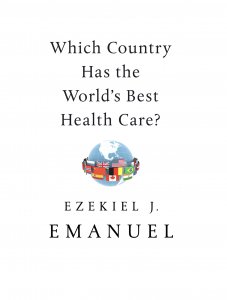Which Country Has The World’s Best Health Care?

The famous physician, health economist and bioethicist, Ezekiel J. Emanuel, has recently published a book (Public Affairs, New York, 2020) that tries to answer the famous question of what is the best healthcare system in the world. Obviously, after a long exploration, the answer is that there is no system that can be classified as the best in the world, but rather that they all have their strengths and weaknesses.
But the exploration is not without interest, since he analyzes with some detail, the systems of 11 countries: the United States, Canada, the United Kingdom, Norway, France, Germany, the Netherlands, Switzerland, Australia, Taiwan and China. Very much in the Anglo-Saxon tradition, Spain does not exist and, what is even more surprising, none of the Latin American and Caribbean countries.
The book analyzes the 7 challenges that healthcare systems usually face:
- Cost pressure
- The price of medicines
- Inefficiency in the provision of services
- Coordination of patients with chronic diseases
- Mismatch between the organization of provision services and the needs of chronic patients
- Provision of mental care
- Long-term care
The book has very interesting graphs that analyze: a) the different types of coverage in each country; b) financing and origin of funds; c) the system of payment to hospitals and doctors; d) organization of provision (including hospital care, outpatient care, mental care, long-term care and prevention); e) pharmaceutical coverage and price control; and, finally, f) human resources.
The challenges of each country are analyzed objectively.











